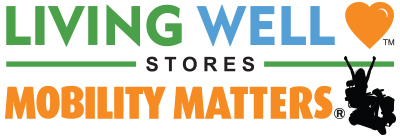
Aging in place – the buzz-phrase that, according to ageinplace.com, means continuing to live in the residence of your choice, as long as you are able, as you age.
I would add that the residence of your choice should be a safe, healthy environment. My mom wanted to add that it’s also staying where you are around people you know and feel comfortable with.
As with planning for retirement, aging in place also requires planning. The trend is so new that few people do plan ahead, which means plans to age in place could be disrupted if your needs aren’t being met.
Here are 6 tips for planning ahead to age in place. Let’s think about how each of these can be planned for.
- This refers to a safe home and personal safety. Your home is aging just as you are and will require regular maintenance. It may even require modifications as your mobility diminishes. Your Aging In Place Plan should include identifying a means to pay for upkeep and modifications, as well as using a trusted source to make these repairs or modifications. Maybe this person is your son-in-law or a neighbor who has always been there when you need work done.
- Speaking of home modifications…to keep your home accessible, these types of modifications may be needed:
-
A ramp to get up to and through the front door.
-
Leveling of door jambs to accommodate a walker, wheelchair or scooter.
-
An adapted shower or bathing facilities. Adaptations could be as simple as adding a seat to the bathtub or as complex as completely redesigning the bathroom to accommodate mobility devices, handrails, walk-in shower.
-
Modifications in the kitchen to make meal preparation and clean up easier.
-
Adjustments in the bedroom to ease getting in and out of bed and to limit trips to the bathroom by having portable toilet options near the bed.
If you find yourself looking to downsize after the kids are grown and on their own, keep these modifications in mind when looking for your new home. You may not need them now, but planning for them in advance makes the transition so much easier and less costly to accomplish.
- Contact with friends and family. According to Liz Seegert with the Association of Health Care Journalists, social isolation and loneliness are associated with increased mortality and health issues such as dementia, increased risk for hospital admission and risk of falls in older adults. Regular social interactions with friends and family are like a prescription for increased well-being. Derek Taylor of Manchester, UK, put together this list of ways to combat loneliness. Derek, by the way, is 90-years old and practicing what he preaches. Here is his list:
- Make an effort to make new friends.
- Join a club for your favorite hobby.
- Visit your local community or resource center and find out what programs are offered.
- Learn to use a computer at your local library.
- Seek help from your local social services.
- Consider taking in a lodger or paying guests.
- Use your telephone more often to contact people; don’t wait for people to contact you.
- Contact friends and relatives you haven’t spoken to recently.
- Do volunteer work if you are able to.
- Make friends with your neighbors.
- Transportation is a critical resource that affects all of the other considerations in this article. If the time comes when you can no longer drive yourself, there are a variety of transportation resources to call upon. From family and friends, taxi cabs, public transportation, to calling on medical transport when needed, the key is to experiment with a variety of resources until you find one or two with which you are comfortable. Tech-savvy seniors with smartphones can take advantage of relatively inexpensive ridesharing apps such as Uber and Lyft, which offer greater convenience than scheduling public medical transport.
- Derek’s list includes taking advantage of resources. By dialing 2-1-1 from your telephone, you are connected to someone who can answer questions and direct you to local resources. This phone number has been reserved by the Federal Communications Commission (FCC) as an easy-to-remember and universally recognizable number that would enable a critical connection between individuals and families in need and the appropriate community-based organizations and government agencies.
Other resources include the public library and local colleges, which have adult education programs.
- After forty or more years of planning and serving up to three meals per day, it’s easy to run out of ideas and inspiration for the next meal. Add to that changes in appetite due to illness or medications, and eating regular healthy meals becomes an ordeal. Alternatives to in-home meal prep include Meals-on-Wheels, your senior community center, local churches and ordering in. My mom goes to a bible study group at her church on Wednesdays, and then a group of the women goes to another area church for an inexpensive lunch and fellowship. This fulfills her meal as well as social interactions to keep her in touch with friends.
By planning ahead to age in place, you have a chance to consider and “test drive” the options described in this article before you really need them. Each tip may seem like a major step outside your comfort zone. The alternative is to be caught unprepared, and possibly forced into living situations not of your choosing.
For more information about planning to age in place, check out these sources:
AARP – Can You Afford to Age in Place? (https://www.aarp.org/money/budgeting-saving/info-2017/costs-of-aging-in-place.html)
United Way 2-1-1, a free and confidential service that helps people across North America find the local resources they need 24 hours a day, 7 days a week. (https://www.unitedway.org/our-impact/featured-programs/2-1-1#)













